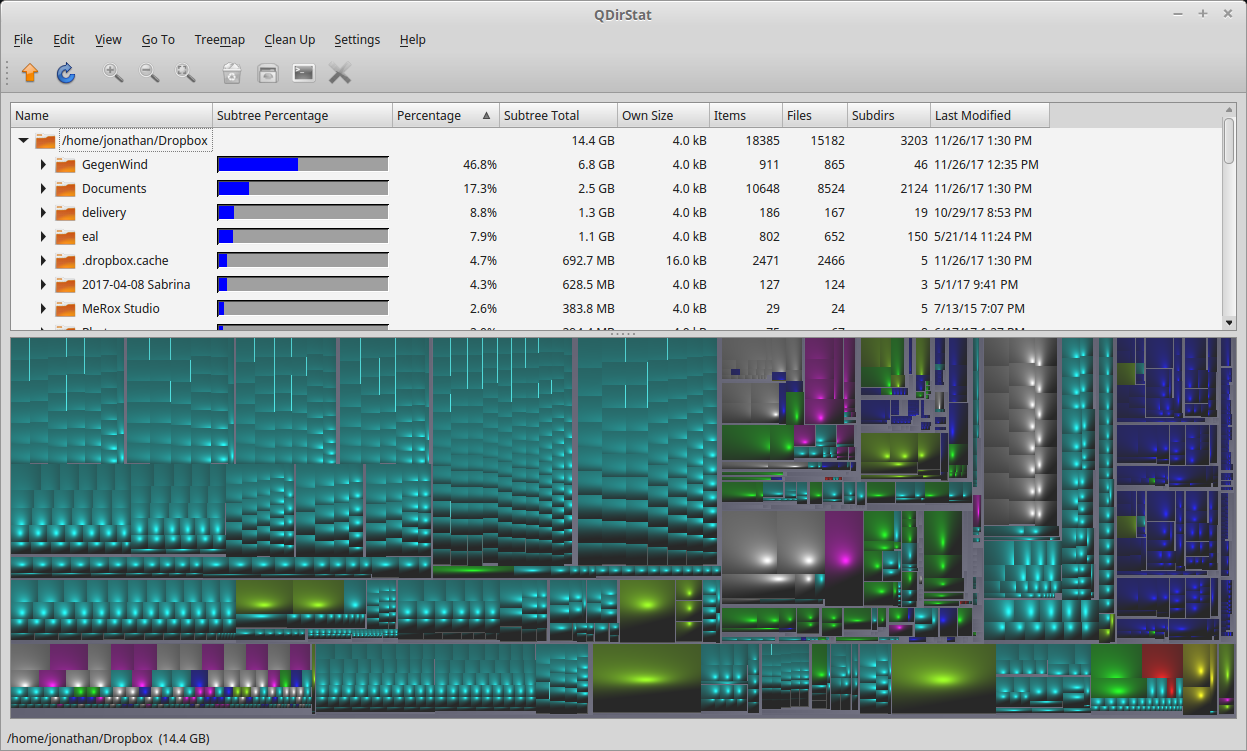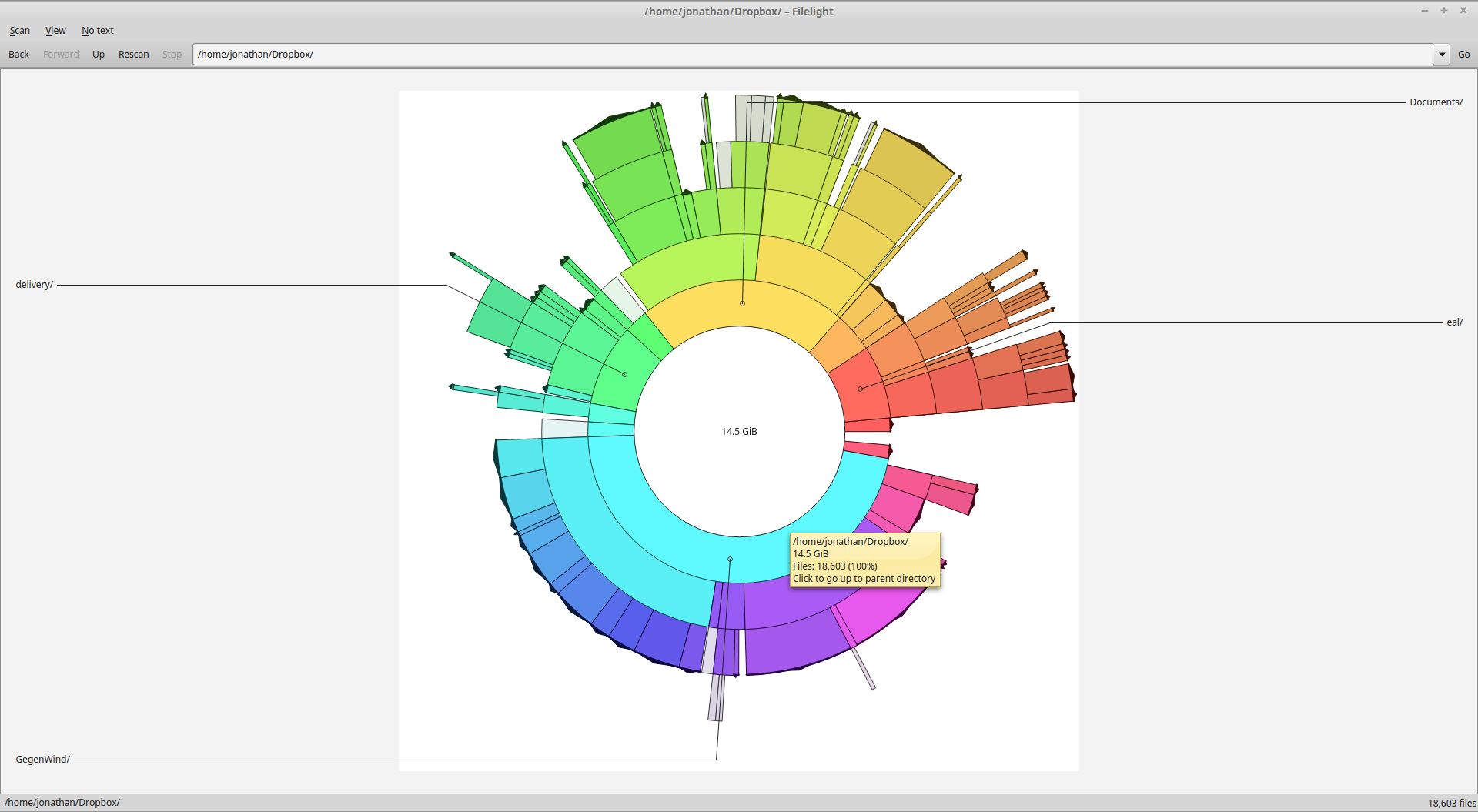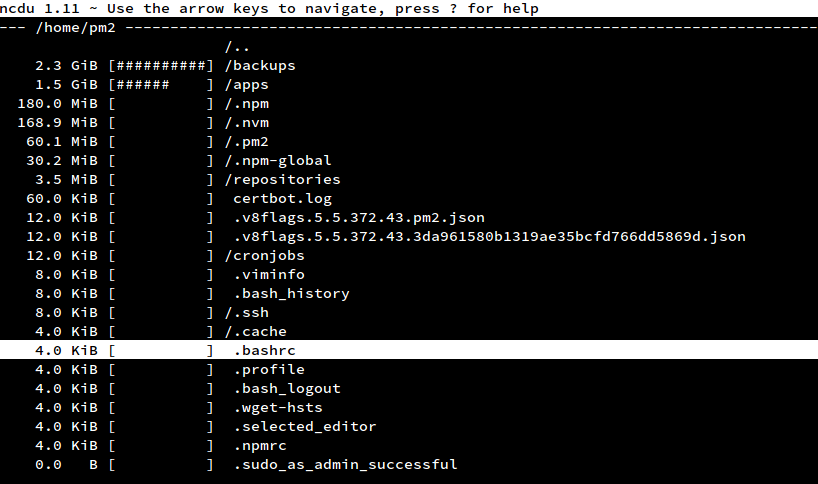
Visualize / Analyze Disk Space on Windows, Linux and Mac OS
Do you want to know which files on your computer take up a ton of space? I do, frequently. Being the system administrator at work and at home trying to keep my Dropbox on a free plan, because to be honest, how many files do really need to have access to at any point in time?
Anyhow, the following programs make the information of what really takes up space on your Windows machine, Macbook, Linux hacker heaven box and what ever else you installed an operating system on very accessible. Analyzing your disk space visually is much more intuitive than trying to understand the raw numbers and compare them in your head.
Windows: WinDirStat
Windows still being a widely used OS, WinDirStat is probably one of the most well known tools for displaying disk usage and showing you a visual overview.Mac OS: Disk Inventory X
On Mac OS there is a slightly unstable alternative to WinDirStat that I use at work a lot, but it might not get along super well with the most recent iterations of the Mac OS 10.xx operating systems.Check out Disk Inventory X, it does not seem to have been updated much in the past 10 years, but then again, calculating disk space has not really changed since then ;)
Linux: QDirStat, Filelight, ncdu (cli)
As usual, there are a couple of different options to pick from, depending on personal preference. I have just listed my top three and included an option for your server needs below.QDirStat

QDirStat is probably the closest to the original WinDirStat KDirStat (thanks blog comments!), it lists directories and files in rectangles and you can navigate through them by clicking the coloured shapes to identify what's locking up your drives
Installation on Ubuntu and the like:
sudo add-apt-repository ppa:nathan-renniewaldock/qdirstat
sudo apt-get update
sudo apt-get install qdirstat
Filelight

The display is a circular graph, which is a bit more confusing but also accurately paints the areas depending on which directories and files take up the most space.
Installation on Ubuntu and the like:
sudo apt-get install filelight
ncdu

ncdu uses an ncurses interface and you can easily jump through directories and see their total size, which is useful because by default ls only reports 4KB for every directory, ncdu actually calculates the full disk space usage for directories on Linux.
sudo apt-get install ncdu